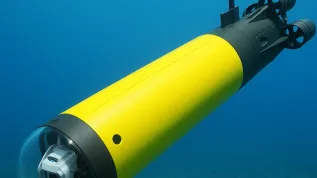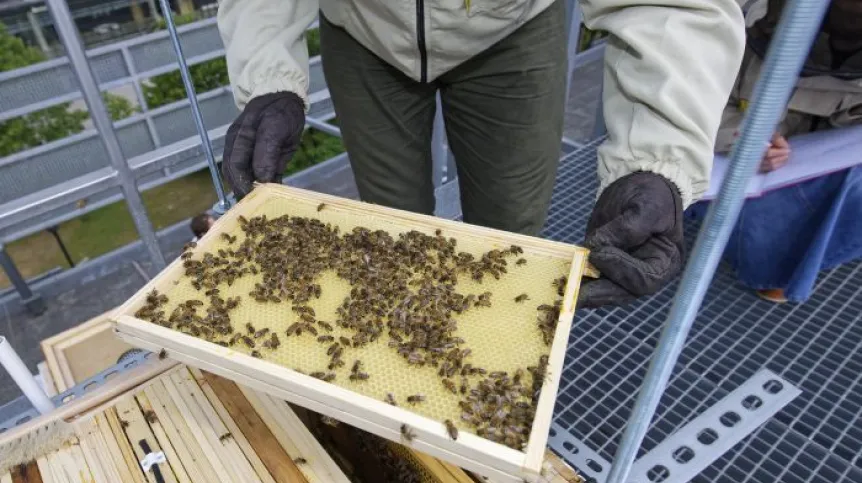
Scientists from the Faculty of Environmental Engineering of the Wrocław University of Science and Technology are working on measuring instruments and devices that will help in the care of bee families. They have set up an apiary called 'Ulopolis' on the roof of one of the buildings on the main university campus.
The life of bees can be watched at: http://ulopolis.pwr.edu.pl thanks to the cameras installed in the apiary.
The systematic decline of the populations of these useful insects has been observed for some time. The phenomenon is particularly intensive in Europe and the USA. Traditional methods of fighting the mass extinction of honey bees have been used with a limited success. Hence, many research centres are working on new strategies to save this species of insects, the Wrocław University of Science and Technology reminds in a press release.
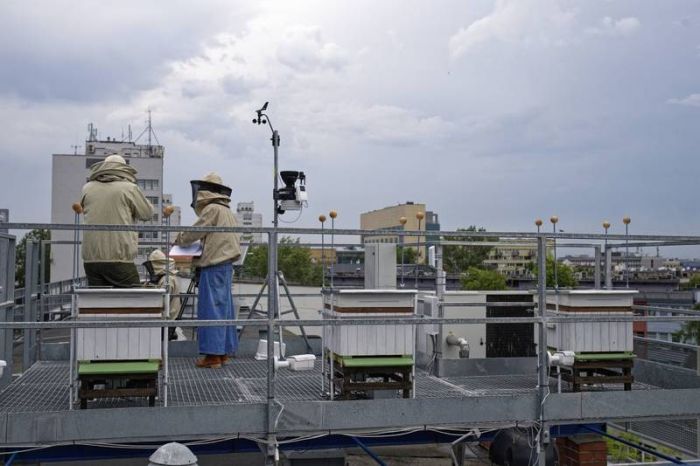
The Wrocław University of Science and Technology, especially the Faculty of Environmental Engineering, is also involved in these activities.
In 2017, the Faculty of Environmental Engineering and the Wroclaw Centre for Networking and Supercomputing began to implement a project financed by the National Centre for Research and Development as part of the BIOSTRATEG research programme. The goal was to develop innovative, smart tools to monitor the prevalence of American foulbrood (AFB) and increased cases of varroosis caused by Varroa destructor mites in the honey bee families.
The project was successfully completed in 2021, and its effect were prototype detectors of these two very dangerous honey bee diseases.
“Frequent conversations with beekeepers confirmed our belief that modern beekeeping needed modern equipment that would improve the apiary economy,” says Dr. Andrzej Szczurek, a professor at the Faculty of Environmental Engineering, quoted in the release.
Researchers from the Wrocław University of Science and Technology were particularly interested in the lack of measuring instruments that would allow to easily and cheaply obtain information about the condition of bee families and the conditions inside the hives.
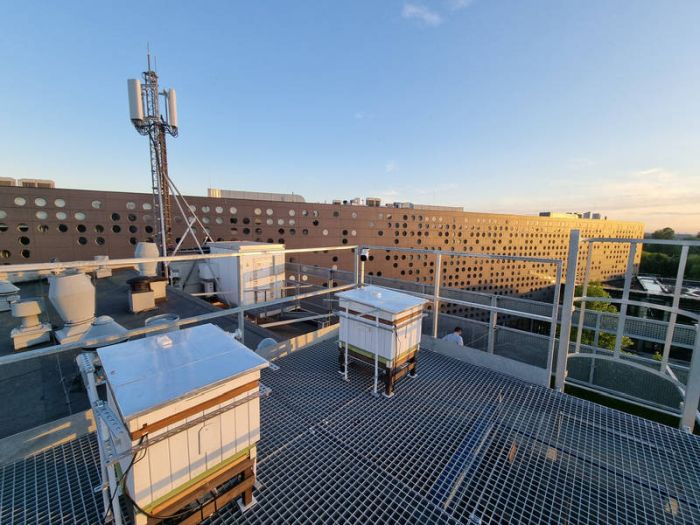
Researchers from Wrocław began cooperation with the 'Bee Embassy' Foundation, which actively participates in various types of educational campaigns related to the protection and saving pollinating insects. After signing the agreement, the foundation provided three hives with bee families to the university. The 'Bee Embassy' also undertook to provide professional care for them.
“We populated the beehives with bees and an apiary was created, which we called Ulopolis,” explains Dr. Monika Maciejewska, a professor at the Department of Air-Conditioning, Heating, Gas Engineering and Air Protection.
The hives were placed on the roof of the C-6 building which guarantees the safety of employees, students and bees. A specially designed platform along with the fastening system offers protection and guarantees hive stability during strong winds, and plants growing nearby provide food for the insects.
Although there are already a lot of urban apiaries, the nature and purpose of Ulopolis is unique. The apiary has extensive measuring and observation infrastructure. Funds for the development and purchase of equipment come entirely from the budget of the Faculty of Environmental Engineering.
Temperature, humidity and gas sensors make it possible to monitor the conditions inside the hives. The nearby meteorological station provides data on the current weather situation. Specially constructed scales under the hives allow to measure their mass without interruption. Camera system allows to observe both the outlets and the interior of the hives.
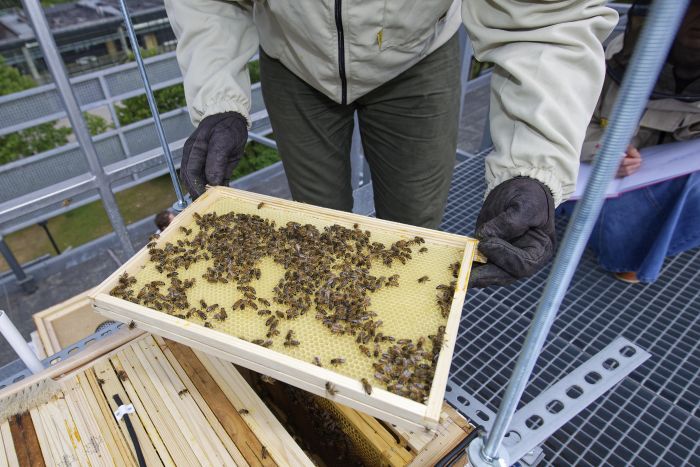
“Looking at the life of bees in natural conditions is extremely addictive, but the decision to monitor the interior of the hives initially caused numerous concerns, mainly about the reaction of bees to the installed devices that were a foreign element in their natural environment,” adds Maciejewska. “Over a month of observations in the apiary proves that sensors and cameras do not disturb the insects and are accepted by them. It confirms our belief that uninterrupted monitoring of bee families and their surroundings is possible in practice.”
Dr. Andrzej Szczurek says that the project will be developed and the results will be presented online. Thanks to the involvement of the Wroclaw Centre for Networking and Supercomputing, the apiary monitoring data are transferred, secured and archived on servers.
The Wroclaw Centre for Networking and Supercomputing is also responsible for the technical aspects related to the preparation and maintenance of the apiary website. It provides access to image streaming from all cameras.
The initiators of the apiary emphasise that Ulopolis is not intended for the production of honey or studying the biology of honey bees. The apiary is a research station for field testing of various types of technical solutions that can be used in beekeeping.
The Ulopolis project, which is not limited to the apiary, is still being expanded. In the near future, a flower bed will be established in the vicinity of the C-6 building to provide bees with food.
PAP - Science in Poland
agt/ kap/
tr. RL


